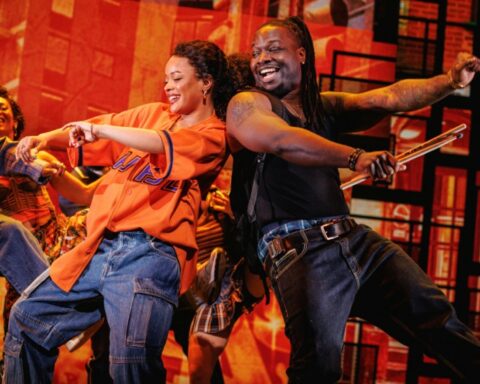
Invading the realm of accents can be a daunting task for any actor, but mastering a British one is almost a necessity in the world of performance arts. Imagine effortlessly sliding into your character, words rolling off your tongue with that distinct British charm. Whether you’re an aspiring Hugh Grant or Keira Knightley, our comprehensive step-by-step guide will walk you through the intricacies of nailing down the authentic British accent for your next role. It’s time to let your vocal chords take a trip across the Atlantic and learn how to enthrall your audience with this queen’s dialect. No passport required!
Some tips for learning how to do a British accent include finding a reference model to imitate, using online resources such as dialect archives, practicing with exercises designed for the specific dialect, and studying real-life examples from film and television. While working with a dialect coach is ideal, self-practice can also be effective in improving your accent.
Characteristics of the British Accent
The British accent, renowned for its elegance and distinctiveness, is a fascinating dialect that has captivated actors and audiences alike. What sets it apart from other accents? Let’s explore some of the key characteristics that define the British accent.
One hallmark of the British accent is Received Pronunciation (RP), which represents the poshest form of British English. RP is known for its clear pronunciation and lack of regional features, making it an ideal reference point for actors seeking to adopt a British accent.
British English also exhibits specific phonetic features, such as the replacement of “th” sounds with “f” or “v” sounds in some regions, pronouncing certain vowels differently than in American English (e.g., “cup” sounding like “cap”), and distinctive intonation patterns that give the accent its melodic quality.
For instance, in Received Pronunciation, words like “dance” are pronounced with a longer vowel sound, similar to “dahnce.” This difference in vowel sounds contributes to the identifiable cadence of the British accent.
Furthermore, consonants play an important role in the British accent. Sounds like “t” and “r” are pronounced more precisely compared to General American English, while glottal stops and reductions occur in certain contexts. The iconic elongation of vowels like “u” (pronounced as a liquid sound) instead of “oo” adds further nuance to this unique accent.

Variations and Dialects
Just as there are different regional accents within any country, the British Isles have their own wide array of variations and dialects. While RP serves as a standard reference, it’s essential to understand and appreciate the diversity that exists among these dialects.
From Cockney to Geordie, Scouse to West Country, each variation has its distinct features shaped by history and geography.
Cockney, associated with the working class and criminal life, is characterized by rhyming slang and heavy glottal stops. On the other hand, Geordie, spoken in Newcastle, exhibits distinct sounds for “g” and “k,” replaces “what” with “why,” and embraces recognizable connected speech processes.
A prime example of a British accent variation is Scouse, spoken primarily in Liverpool. Highly melodic, it bears similarities to the Irish accent, with a full glottal stop replacing the “t” sound.
West Country accents, found in regions like Devon, Cornwall, and Somerset, feature a rolled “r” sound (similar to Scottish) and have traces of Saxon influence on verb grammar. These variations showcase the rich tapestry of accents within the British Isles.
Knowing about these variations can help actors add authenticity to their performances when portraying characters from different regions. It’s important to research and practice specific accents based on the character’s background to capture the nuances accurately.
- The British Isles have a wide variety of accents and dialects, each with its distinct features shaped by history and geography. Understanding and appreciating these variations can help actors add authenticity to their performances when portraying characters from different regions. It’s important to research and practice specific accents based on the character’s background to capture the nuances accurately.
Techniques to Mimic a British Accent
Mimicking a British accent requires a blend of understanding the distinct characteristics and practicing specific techniques. To truly embody the accent, consider the following techniques:
- Study Different British Accents: There are various regional accents in the UK, such as Received Pronunciation (RP), Cockney, Geordie, Scouse, and West Country. Take time to listen to recordings or watch shows featuring different accents to gain familiarity with their unique qualities and sounds.
- Focus on Pronunciation: Pay close attention to vowel and consonant sounds specific to British English. For instance, drop your jaw more compared to a General American accent, pronounce “r” sounds at the beginning of words and syllables but not at the end, and use a liquid “u” sound instead of “oo.”
- Mind Your Inflections: Inflections play a significant role in sounding authentically British. Observe how Brits tend to emphasize certain words or stresses within sentences. Practice mimicking these intonation patterns in your speech.
Now that we have explored some of the techniques for mimicking a British accent, let’s dive into an essential aspect of mastering any accent: listening exercises and repetitions.
Received Pronunciation (RP Accent)
RP accent, often referred to as the Queen’s English or BBC English, is a form of pronunciation of the English language that is considered standard and prestigious. It’s the accent you’d typically hear in old British films, and it carries a certain air of elegance and formality.
Pronunciation and Intonation
The RP accent is characterized by clear and precise pronunciation. The vowels are pronounced in a specific way, and there’s a particular rhythm and intonation that makes it stand out from other accents. For instance, the ‘r’ at the end of words is usually silent, and the ‘u’ in ‘duty’ sounds like ‘ew’.
Vocabulary and Grammar
In addition to pronunciation, the RP accent also has its own set of vocabulary and grammatical rules. There are certain words and phrases that are more commonly used by speakers of RP, adding to its distinctiveness.
Examples of the RP accent in film
- Pride and Prejudice (2005)
- The King’s Speech (2010)
- Elizabeth The Golden Age (2007)
- Sense and Sensibility (1995)
Here is a great video we found that we think is a wonderful lesson to help you work on the traditional RP accent
Cockney Accent
Geographically, the traditional Cockney accent originates from the East End of London. However, it’s important to note that the boundaries of where Cockney is spoken have shifted over time, especially with the city’s expansion.
Pronunciation and Phonetics
Cockney speakers have a unique way of pronouncing words. They often drop the ‘h’ at the beginning of words and the ‘r’ at the end. For example, ‘house’ becomes ‘ouse’ and ‘car’ sounds like ‘cah’. The ‘th’ sound in words like ‘think’ and ‘brother’ often turns into an ‘f’ or ‘v’ sound, making them sound like ‘fink’ and ‘bruvver’.
Vocabulary and Slang
Cockney isn’t just about pronunciation; it also has its own set of vocabulary and slang. Words like ‘apples and pears’ for stairs and ‘dog and bone’ for phone are classic examples of Cockney slang.
Rhyming Slang
One of the most fascinating aspects of Cockney is its rhyming slang. This involves substituting a word with a phrase that rhymes with it. For example, ‘trouble and strife’ means wife, and ‘plates of meat’ means feet. It’s like a secret code!
Example of Cockney speech the performances of Peter Sellers and Irene Handl in I’m All Right Jack (1959).
Here is a really fun video on someone learning the cockney accent!
Listening Exercises and Repetitions
Listening exercises serve as invaluable tools for honing your ear when it comes to mastering a British accent. Here are a few strategies you can employ:
- Watch British Films and TV Shows: Immerse yourself in the world of British media by watching films, TV shows, and documentaries featuring native English speakers from different regions. Pay attention to their pronunciation, cadence, and rhythm.
- Listen and Repeat: Find audio resources or recordings of native speakers speaking in their natural dialects. Focus on imitating their pronunciation by repeating after them aloud. Start slowly, breaking down words into smaller segments if needed, and gradually increase your speed and fluency.
- Use Dialect Resources: Explore online resources such as dialect archives or specialized accent websites that provide samples of native speakers from different regions. These resources often include explanations, practice sentences, and audio guides to help you refine your skills.
For instance, websites like Accenthelp.com offer comprehensive packages that provide exercises, history of the dialects, and sound samples from dialect coaches for a more structured approach to learning.
Remember, like any skill, mastering a British accent requires consistency, practice, and patience. Embrace every opportunity to engage with the accent in your everyday life – whether it’s through listening to British podcasts or engaging with native English speakers from the UK.
Perfecting Pronunciation and Phonetics
When it comes to mastering a British accent in acting, perfecting pronunciation and phonetics is key. The British accent is known for its distinct sounds and speech patterns, so paying attention to these details is crucial for authenticity.
To start, focus on the specific sounds that differentiate British English from other accents. For example, pay close attention to vowel sounds such as the short “a” sound in words like “bath” or “dance.” Practice creating the correct shape and placement of your mouth to produce these sounds accurately.
Additionally, familiarize yourself with common phonetic elements used in a British accent. This may involve learning new symbols and understanding their corresponding sounds. By studying these phonetic elements, you’ll be able to reproduce the unique inflections and intonations that give the British accent its charm.
With consistent practice, listening to native speakers, and seeking feedback from dialect coaches or language experts, you can refine your pronunciation and develop a more authentic British accent.
Neutralization and Naturalness in Speech
While achieving accurate pronunciation is important, it’s equally essential to focus on neutralization and naturalness in your speech when adopting a British accent for acting.
Neutralization refers to minimizing any regional or personal speech habits that could distract from the intended British accent. It involves becoming conscious of tendencies like elongating certain vowel sounds or using specific articulation patterns that are not typical of British English.
One effective way to achieve neutralization is by immersing yourself in British culture through exposure to native speakers. Watch movies or television shows featuring actors with authentic British accents, listen to podcasts or interviews, and try imitating their speech patterns.
Furthermore, aiming for naturalness in your delivery is essential for portraying believable characters with a British accent. Avoid sounding forced or exaggerated by maintaining a balance between accuracy and ease of expression. Practice spontaneity in your speech and incorporate the rhythm, pace, and intonation patterns commonly observed in British English.
It’s important to note that achieving neutralization and naturalness requires perseverance and consistent practice. Embrace every opportunity to use your British accent in everyday conversations or during acting exercises, allowing yourself to become more comfortable and fluent over time.
Employing the British Accent in Acting
Mastering a British accent can be a game-changer for actors looking to expand their range and versatility. Whether you’re preparing for a role set in the UK or simply want to add a new skill to your repertoire, employing a convincing British accent can greatly enhance your acting abilities. It allows you to fully immerse yourself in the character and create a more authentic and captivating performance. So, let’s delve into how you can effectively employ the British accent in your acting endeavors.
Dialogue Delivery and Slang Usage
To truly embody a character with a British accent, it’s not only important to focus on the pronunciation but also on dialogue delivery and slang usage. While pronunciation helps you sound more authentically British, pay attention to the rhythm, intonation, and inflection of speech. These elements contribute to the overall musicality of the language and help create a believable portrayal.
When it comes to slang usage, try to familiarize yourself with common British expressions and colloquialisms. This will add depth and realism to your character by accurately reflecting their cultural background. Watch British films and television shows, listen to native speakers, and immerse yourself in British culture to understand how certain phrases are used in context.
Remember that each region in Britain has its own distinct accent and dialects, so researching specific accents based on your character’s origin is crucial for authenticity. Additionally, understanding regional vocabulary variations can make your performance more nuanced and accurate.
For example, if your character hails from London’s East End (a Cockney accent), incorporating rhyming slang such as “apples and pears” for “stairs” or “trouble and strife” for “wife” would paint a vivid picture of their background.
By focusing not just on pronunciation but also on dialogue delivery and slang usage, you can bring your character to life with a convincing British accent. Practice consistently, explore various resources, and immerse yourself in British culture to refine your skills.









